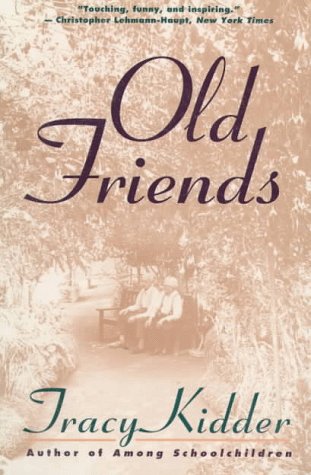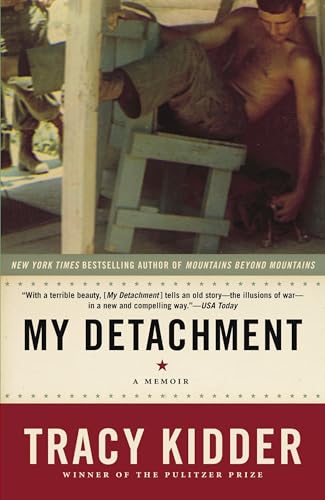Tracy Kidder non-fiction author
Explore the compelling non-fiction works of Tracy Kidder, featuring a detailed list of his acclaimed books. Dive into his insightful narratives that blend meticulous research with masterful storytelling.

Book
Home Town
by Tracy Kidder
Describes the everyday workings of a seemingly typical American hometown and reveals the complex drama behind the lives of its residents.

Book
Among Schoolchildren
by Tracy Kidder
Tracy Kidder -- the Pulitzer Prize-winning author of The Soul of a New Machine and the extraordinary national bestseller House -- spent nine months in Mrs. Zajac's fifth-grade classroom in the depressed "Flats" of Holyoke, Massachusetts. For an entire year he lived among twenty schoolchildren and their indomitable, compassionate teacher -- sharings their joys, their catastrophes, and their small but essential triumphs. As a result, he has written a revealing, remarkably poignant account of education in America . . . and his most memorable, emotionally charged, and important book to date.




Book
The Road to Yuba City
by Tracy Kidder
"Tracy Kidder tells the story surrounding one of the strangest, most notorious crimes of the century -- the murder of twenty-five migrant workers outside the town of Yuba City, California. In covering the Juan Corona mass murder case, Kidder traveled widely: to towns on either coast, in order to talk to the families of vicitms; to Guadalajara, Mexico, where he found Corona's mysterious half brother, a man some people accused of being the killer; and many times to California, where he observed Corona's four-month-long trial."--Book jacket

Book
My Detachment
by Tracy Kidder
My Detachment is a war story like none you have ever read before, an unromanticized portrait of a young man coming of age in the controversial war that defined a generation. In an astonishingly honest, comic, and moving account of his tour of duty in Vietnam, master storyteller Tracy Kidder writes for the first time about himself. This extraordinary memoir is destined to become a classic. Kidder was an ROTC intelligence officer, just months out of college and expecting a stateside assignment, when his orders arrived for Vietnam. There, lovesick, anxious, and melancholic, he tried to assume command of his detachment, a ragtag band of eight more-or-less ungovernable men charged with reporting on enemy radio locations. He eventually learned not only to lead them but to laugh and drink with them as they shared the boredom, pointlessness, and fear of war. Together, they sought a ghostly enemy, homing in on radio transmissions and funneling intelligence gathered by others. Kidder realized that he would spend his time in Vietnam listening in on battle but never actually experiencing it. With remarkable clarity and with great detachment, Kidder looks back at himself from across three and a half decades, confessing how, as a young lieutenant, he sought to borrow from the tragedy around him and to imagine himself a romantic hero. Unrelentingly honest, rueful, and revealing, My Detachment gives us war without heroism, while preserving those rare moments of redeeming grace in the midst of lunacy and danger. The officers and men of My Detachment are not the sort of people who appear in war movies–they are the ones who appear only in war, and they are unforgettable.

Book
Strength in What Remains
by Tracy Kidder
Tracy Kidder, winner of the Pulitzer Prize and author of the bestsellers The Soul of a New Machine, House, and the enduring classic Mountains Beyond Mountains, has been described by the Baltimore Sun as the “master of the non-fiction narrative.” In this new book, Kidder gives us the superb story of a hero for our time. Strength in What Remains is a wonderfully written, inspiring account of one man’s remarkable American journey and of the ordinary people who helped him–a brilliant testament to the power of will and of second chances. Deo arrives in America from Burundi in search of a new life. Having survived a civil war and genocide, plagued by horrific dreams, he lands at JFK airport with two hundred dollars, no English, and no contacts. He ekes out a precarious existence delivering groceries, living in Central Park, and learning English by reading dictionaries in bookstores. Then Deo begins to meet the strangers who will change his life, pointing him eventually in the direction of Columbia University, medical school, and a life devoted to healing. Kidder breaks new ground in telling this unforgettable story as he travels with Deo back over a turbulent life in search of meaning and forgiveness. An extraordinary writer, Tracy Kidder once again shows us what it means to be fully human by telling a story about the heroism inherent in ordinary people, a story about a life based on hope.